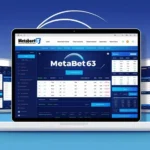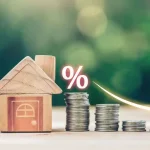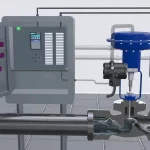Solar panels have emerged as a powerful and eco-friendly way to generate electricity while reducing both energy costs and carbon footprints. As the demand for solar energy continues to grow, so do the financing options available to homeowners and businesses. These options make it easier for individuals to embrace clean energy and invest in solar panel installations. In this comprehensive guide, we will explore various solar panel financing options, helping you understand how to make the transition to renewable energy affordable.
The Growing Appeal of Solar Energy
Solar panels have gained immense popularity due to their numerous benefits, including:
- Savings on Energy Bills: Solar panels can significantly reduce or even eliminate your electricity bills by generating power from sunlight.
- Environmental Benefits: Solar energy is clean and renewable, producing no greenhouse gas emissions and helping combat climate change.
- Energy Independence: Solar panels provide homeowners and businesses with a degree of energy independence, reducing reliance on traditional grid electricity.
- Increased Property Value: Solar panel installations often increase the resale value of homes and commercial properties.
Solar Panel Financing Options
While the upfront cost of purchasing and installing solar panels can be significant, various financing options are available to make clean energy accessible to a broader range of individuals and organizations:
1. Cash Purchase
One of the most straightforward ways to finance solar panels is to pay for them in cash. While this requires a substantial upfront investment, it offers the most significant long-term savings since you won’t be paying interest or financing fees.
Pros:
- Maximum long-term savings.
- Immediate ownership of the solar panel system.
Cons:
- High initial cost.
- May strain your financial resources.
2. Solar Loans
Solar loans are designed explicitly for financing solar panel installations. These loans allow you to spread the cost of your solar system over time, making it more affordable.
Pros:
- Ownership of the solar panel system.
- Potential for immediate energy bill savings.
- Various loan terms and interest rates available.
Cons:
- Interest rates may vary based on creditworthiness.
- Monthly loan payments.
3. Solar Leases
With a solar lease, you don’t own the solar panels, but you pay a monthly fee to lease and use the system. The solar leasing company typically maintains and monitors the system.
Pros:
- Low or no upfront costs.
- No ownership responsibilities.
- Immediate energy bill savings.
Cons:
- No access to tax credits or incentives.
- Limited control over the system.
- May require a long-term commitment.
4. Power Purchase Agreements (PPAs)
A PPA is a contract between you and a solar provider. The provider installs, maintains, and owns the solar panels on your property, and you agree to purchase the electricity generated by the system at a predetermined rate.
Pros:
- Little to no upfront costs.
- Immediate energy bill savings.
- No ownership responsibilities.
Cons:
- May not be eligible for tax credits or incentives.
- Fixed energy rates, which may not offer as much savings as owning the system.
5. Home Equity Loans or Lines of Credit
If you have equity in your home, you can use it to finance your solar panel installation through a home equity loan or line of credit. This option allows you to leverage your home’s value to secure lower interest rates.
Pros:
- Potentially lower interest rates.
- May be tax-deductible in some cases.
- Access to your home’s equity.
Cons:
- Using your home as collateral.
- Monthly loan payments.
6. PACE Financing
Property Assessed Clean Energy (PACE) financing programs are offered in some areas. PACE allows property owners to finance energy-efficient and renewable energy upgrades through a special assessment added to their property tax bill.
Pros:
- Low interest rates.
- No upfront costs.
- Repaid through property taxes.
Cons:
- Requires approval and availability in your area.
- Can impact property sale or refinance.
7. Green Energy Loans
Some banks and credit unions offer specialized green energy loans designed to finance energy-efficient and renewable energy projects, including solar panel installations.
Pros:
- Tailored financing for green energy projects.
- May offer competitive interest rates.
Cons:
- Interest rates may vary based on creditworthiness.
- Monthly loan payments.
Factors to Consider
When evaluating solar panel financing options, several factors should be taken into account:
1. Budget and Financial Goals
Assess your budget and financial goals to determine how much you can comfortably invest in a solar panel system. Consider your long-term savings objectives and weigh them against upfront costs.
2. Ownership vs. Leasing
Decide whether you prefer to own the solar panel system or opt for a leasing or PPA arrangement. Ownership offers the potential for more significant savings but requires a higher initial investment.
3. Interest Rates and Loan Terms
If you’re considering a solar loan or financing option, compare interest rates, loan terms, and monthly payments from different lenders to find the most favorable terms.
4. Incentives and Tax Credits
Explore federal, state, and local incentives and tax credits available for solar panel installations. These can significantly reduce your overall costs.
5. Energy Savings
Consider how much you can save on your energy bills with solar panels. Calculate your potential return on investment (ROI) based on your location, energy consumption, and financing terms.
6. Long-Term Goals
Think about your long-term goals for energy independence, sustainability, and property value when deciding on a solar panel financing option.
Conclusion
Solar panels offer a sustainable and cost-effective way to generate clean energy, reduce electricity bills, and contribute to environmental preservation. With various financing options available, including cash purchases, loans, leases, and power purchase agreements, individuals and businesses can choose the method that best aligns with their budget and financial goals.
When considering solar panel financing, carefully evaluate your options, compare interest rates and terms, and take advantage of available incentives and tax credits. Ultimately, the right financing choice can make the transition to clean energy more affordable and accessible, allowing you to enjoy the many benefits of solar power while reducing your carbon footprint.













